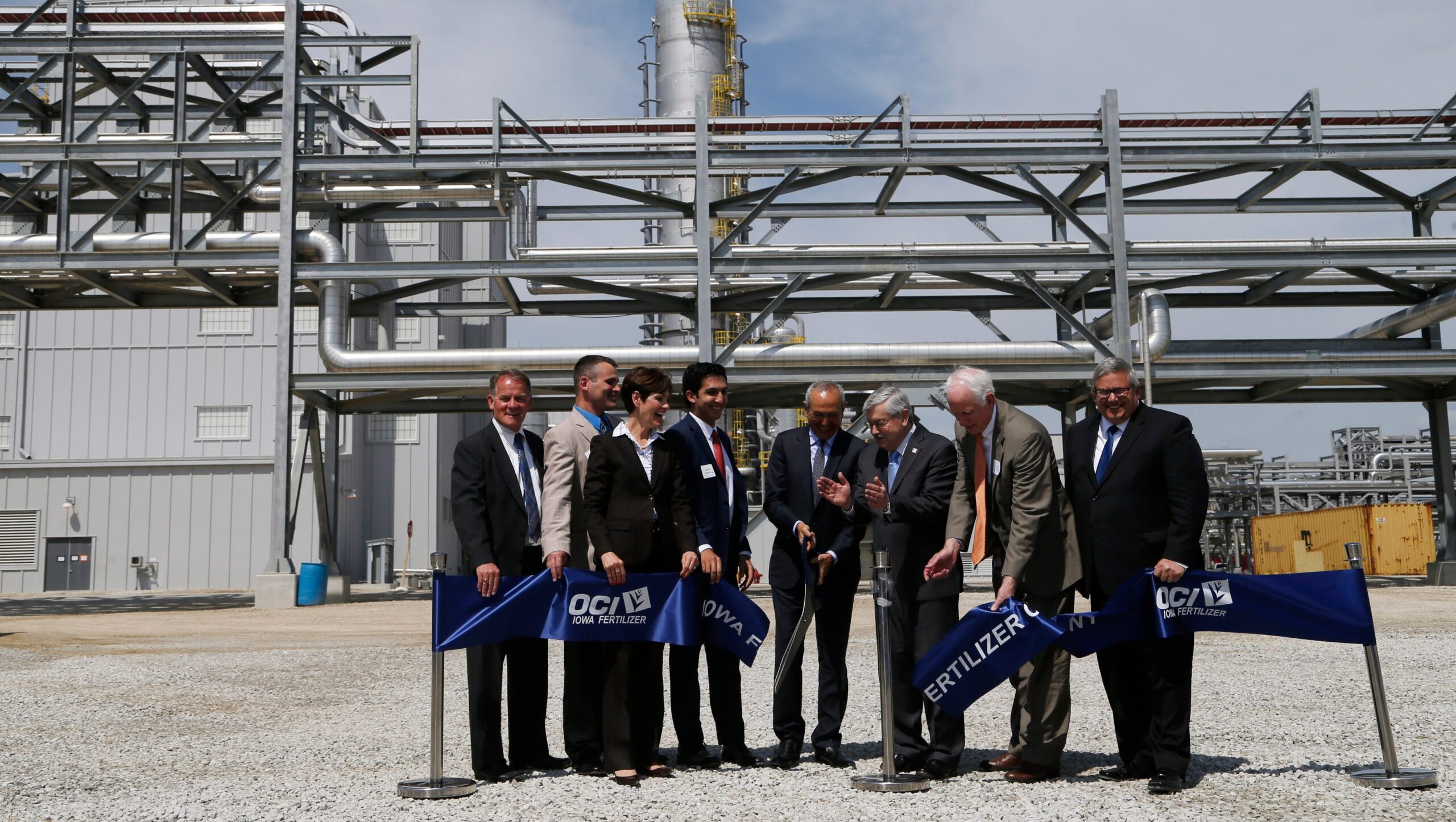Koch says its $3.6 billion purchase of Iowa fertilizer plant finalized

Koch Inc. says it’s completed the controversial $3.6 billion purchase of the Iowa Fertilizer Co., a project in southeast Iowa built with millions of dollars in government incentives.
Koch Ag & Energy Solutions, a Koch subsidiary, said Thursday it had bought the plant near Wever from OCI Global. Wichita, Kansas-based Koch in December announced its plan to buy the facility, which produces 3.5 million metric tons of nitrogen fertilizers and diesel exhaust fluid annually.
“This acquisition marks another significant investment in the growth of our fertilizer business,” Mark Luetters, president of the company, said in a statement. “In the past 15 years, we have invested $2 billion in our North American production facilities to enhance reliability, expand production and improve logistics for our customers.
“This investment enhances our ability to serve customers long-term by providing additional flexibility to adapt to their nitrogen preferences,” Luetters said.
Farmers have expressed concern about the deal further consolidating the fertilizer industry and driving prices higher. At an Iowa Farmers Union event in April in Nevada, about 100 from Iowa and other Midwestern states told Lina Khan, the Federal Trade Commission chair, at an Iowa Farmers Union event in Nevada that consolidation within the agriculture industry — from makers of fertilizer and farm chemicals to seed producers — was squeezing already slim profits from their operations.
They said that allowing Koch, already a giant fertilizer provider, to purchase the plant would reduce competition.
Nationally, four companies account for 75% of the supply of nitrogen, according to the U.S. Department of Agriculture, which announced in 2022 it would invest $500 million to expand fertilizer production.
More:Landus expects small ‘green’ ammonia plants to make big dent in farmers’ fertilizer costs
While declining to specify what action the Federal Trade Commission would take, Khan said the agency could investigate proposed mergers like OCI Global and Koch’s to understand if they’re “going to eliminate competition in any way that’s going to harm farmers, harm communities or harm customers.”
In 2012, OCI received about $112 million in state incentives, about $130 million in local property tax exemptions and an estimated $300 million in tax benefits through the sale of Midwest disaster bonds for construction of the plant. At the time, the company said the project was the “first world-scale greenfield nitrogen fertilizer company built in the United States in 25 years.” Proponents said it would save U.S. farmers money and improve access.
Koch said the plant employs about 300 people and joins a portfolio that includes four nitrogen production facilities in the U.S., one in Canada and an extensive terminal network. The company and its affiliates also hold a share of ownership in three nitrogen facilities in Trinidad and Tobago as well as a phosphate production facility in Morocco.
“We are excited about the opportunities the Wever facility provides to better serve existing and new customers,” said Scott McGinn, executive vice president of Koch Fertilizer. “The plant’s location allows us to extend our product offerings to new customers in the eastern U.S. and provide all customers with expanded products and services.”
“We are impressed with the employees and look forward to working with the team to maintain safe and reliable operations while exploring opportunities to grow production in the future,” said Pascal Van Teeffelen, Koch Ag & Energy Solutions executive vice president of operations and compliance.

